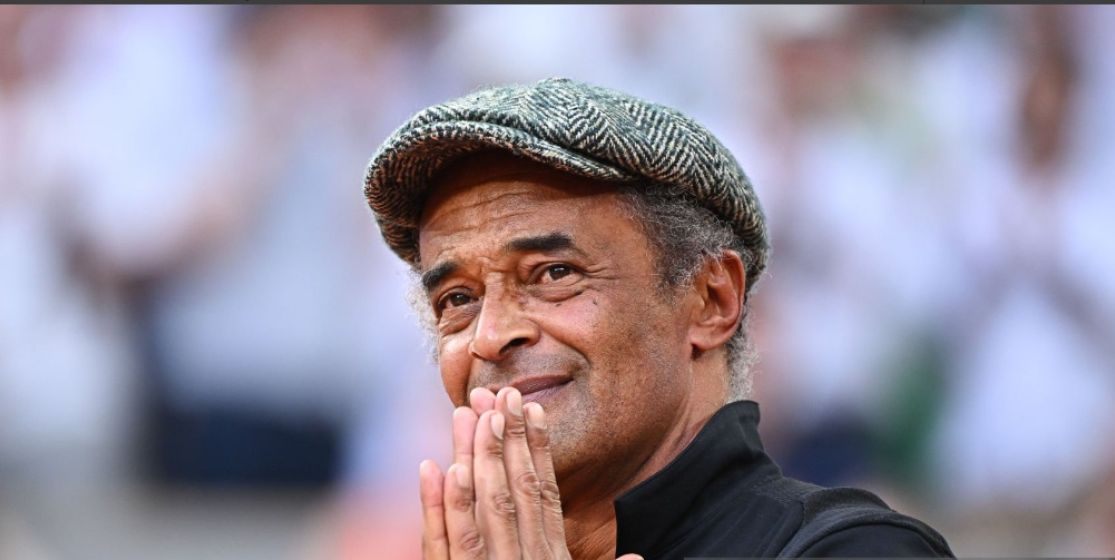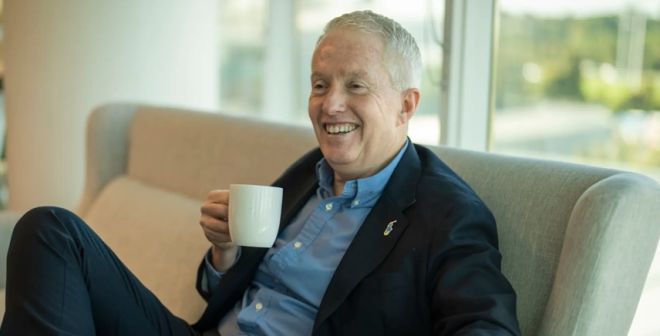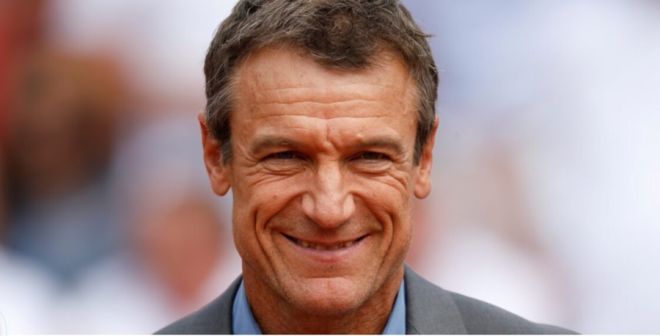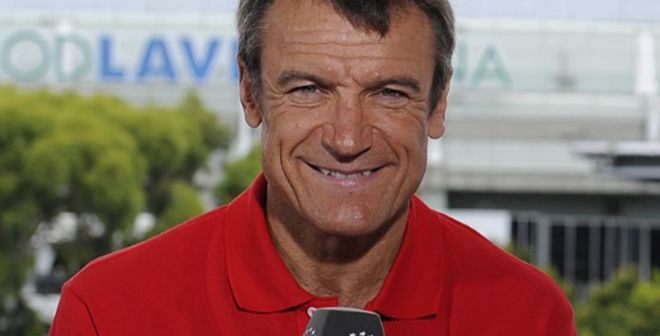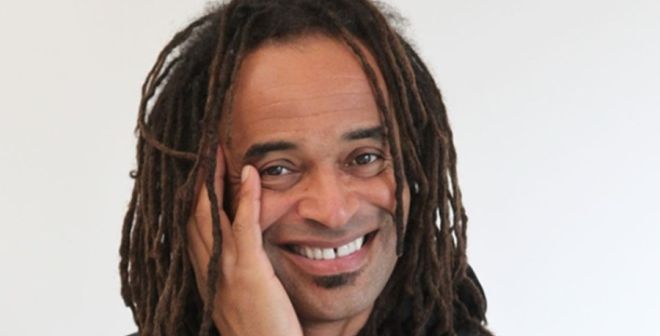Q. How are you doing Yannick? Lovely to speak with you again. It’s been a while. It was wonderful seeing you recently, albeit briefly.
YANNICK NOAH: Well, I'm between all my different lives, starting with being an old young father, to having a concert, a few concert the last three days, back to Roland Garros tomorrow for the wheelchair French tennis. And on and on and on. Life is very exciting.
Q. Let me take you back to 1983. What do you remember of that incredible day at Roland Garros and you holding La Coupe des Mousquetaires?
YANNICK NOAH: Wow. Well, I mean, first of all, it's been a long time. It's been a long time. But what I remember was I was overwhelmed by the joy of the whole stadium. As I look back, I just see that this moment was, like, so perfect in terms of winning my first Grand Slam at home.
All, all the family was there, all my friends. I was living Paris then, so all my friends, all the people that have been with me during my whole journey, including the people making the courts, the people taking care of the gardens. Everywhere I looked, I saw some familiar happy faces. So that was, like, it was perfect.
That was my problem, because from then, it was very difficult for me to dream about something else. Nothing could surpass this moment. And as time went, I realized that.
You know, I talked to Chrissie Evert a couple years ago. We had a podcast with her and Johnny Mac (McEnroe). And they were talking, and I said, Guys, you know, here I'm sitting, talking with you guys. You have, like, I don't know, ten Grand Slam each.
And Chrissie told me, You know what, Yannick? I was there when you won. I would change five of mine with one like yours, because that emotion and the love was so powerful. I never had something like that.
So basically this is what comes. And of course, my dad coming, adding this emotion. Back then it was the first time that they gave microphone to the winner up there, so I was surprised. And for some reason, my instinct took over. I said all I had to be said, thanking all the people that helped me, thanking the Federation, thanking the fans, the people helping me during the whole journey. And also thanking my second country, which I didn't forget, you know.
So even then, I imagine if I had forgotten something, I would have tried again, you know, tried again and have this stage when I can thank all these people. But the thing is everything was there. Everything was there.
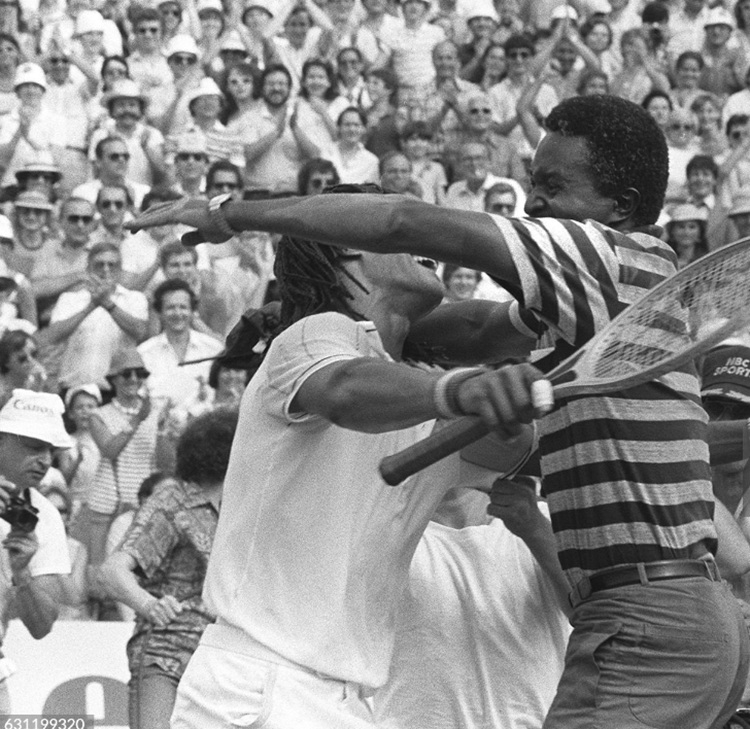
Q. As you were speaking, I'm sitting here smiling, because not only is it beautiful what you're saying, it's almost as if you're reading my notes, because there are things you just said I want to ask you about.
YANNICK NOAH: You were there.
Q. Well, it was amazing scenes. I mean, the picture with your father and that embrace, it's an iconic picture in not just French tennis but I think in world tennis. Do you have that picture, and do you look at it? Does it give you those memories, as well?
YANNICK NOAH: Well, I mean, this is the most powerful picture, because I think for me for me whether you can express it or not, you always play for someone and for some people, for someone. You always play for your family.
Of course it's a lonesome journey sometimes, you're on the court doing your thing, but at the end of the day, when you win, it's to give joy to the loved ones. And the craziness of the whole thing is that you also give joy for people you don't even know, which is, like, a blessing. You have this opportunity through your play, your talent, to give joy to people.
And this, the fact of my dad coming, add to this energy where people were actually looking at each other in front of their TV and said, It was more than just a French guy winning the French Open. It went more.
It felt that, and I know, because to this day, I have people, to this day like, I can honestly tell you almost every day when I walk in Paris, almost everyone, people will say, know that you won the French Open, say, oh, when your dad came... Because that really touched the heart of a lot of people, add to the whole thing.
After that, I saw Pat Cashie winning Wimbledon and jumping into the box. I saw a lot of guys doing that, which is great. But this thing, this moment was so powerful that it really struck me.
You know, it's like when Joakim (his son) won his first NCAA tournament, and the first thing he did, which is funny we never talked about it, but the first thing he did was, like, jump to the stands and come to embrace us and hug us.
That was really powerful, because it took me back to this moment where I think it really touched a lot of people. This emotion was, like, very powerful.
I mean, it's unheard of. You know, you usually cry on, you know, you can cry on your dad's arms, but you never cry it's very unusual to cry of happiness in your dad's arm. On top of it, I have the pictures, I have the film. So, every time I see it, and even now that dad is gone, it's, like, always still very strong memory.
And I know that, you know, the day they gonna put me under the ground, you know, they're going to show this moment, because this was the moment that really people remember. And I do remember it too forever.
Q. That's beautiful. What about the trophy? Where is the trophy? Do you look at it often?
YANNICK NOAH: No. I mean, the trophy is at home in one of the house in Cameroon, in my house. But, no, I don't have any particular emotion looking at it, for some reason. How can I explain.
But it's like the memory, the memory I'm not waking up in the morning saying, Oh, God, I won the French Open, like, 42 years ago. Of course not. But people remind me, and it's always with a big smile and emotion. They always have a story to tell me around it. You know, I remember where I was when you won the French Open. You know, and on and on. And your dad, and your dad, and your dad. Anyway... So that was, you know, that's the relationship I have with this moment.
Q. In this interview series, I have spoken to Jim Courier, to Chrissie, to Stefan Edberg, and what you just said about the trophies, they said something very similar. They don't look at the trophies. For many of them, the trophies that they have won are packed up in boxes and they're not, like, on display, which I think...
YANNICK NOAH: Yeah, but they have too many. They have too many (laughing).
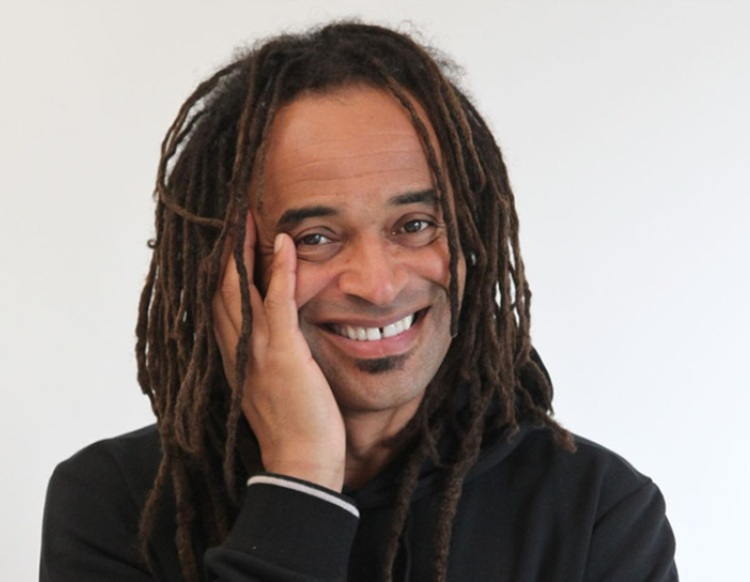
Q. I think that sort of thing would surprise a lot in the public, because they see you guys holding these beautiful pieces up and then putting them away.
YANNICK NOAH: Well, I mean, it's about the memory, really. It's about the memory. I remember there was this marathon runner in the '60s, French Arabic guy. His name was Alain Mimoun. And he won a marathon I don't know where it was but he was running bare feet, and he won.
And this old man, like, 40, 50 years ago, every time they were inviting him on TV, and every time he was telling about the moment, he was crying. He had this emotion. I'm, like, Jeez, this guy is not doing very well, really.
But after, I relate to it. I relate to it, because what's left is like this emotion is crazy that after 42 years, like, sometimes where they have, on TV I'm watching this, I'm watching a game, and they put in, because in between two games, because or whatever, it's a delay or something, they put this moment. And every time, it just makes there is something going inside my heart, in my body. Always, always there.
This is, like, the great part of it. Looking at your trophy doesn't it's just this piece of it's there. It's there. I'm not putting it in a box, but it's just there somewhere. I don't know. I don't have really something with it.
Q. You're not going to remember this, but our first meeting, the first time I ever saw you or said a few words to you was at White City in Sydney. I don't remember the year. Maybe 1976. And this still sticks in my mind. I think you were playing juniors. I had a magazine it may have been "World Tennis," and Arthur Ashe was on the cover. You were sitting on a bench near me, and you saw that and asked if you could read the magazine. And that was the first time I ever met you, although it was brief. So, touching on Arthur, what are your memories of Arthur Ashe?
YANNICK NOAH: Well, I was looking at magazines back in Cameroon, you know, this magazine was named "Tennis de France," and I looked at this guy, you know, pictures. We didn't have a TV. I never saw him play. So the first thing that struck me was, like, God, this guy could be my uncle. This guy could be my big brother. He looks just like me.
The next thing was I was trying to get the same shirt. I used to try I went to France for holidays, and I tried to find, like, the same he had that necklace, and I had the same necklace. I was 17 playing, and I had the same necklace.
Then when I went to France, I saw him play. What I liked, what struck me first is, like, the way he was walking, the energy he had with this demeanor.
I didn't have the same game. You know, my game was very different, in a way, but I thought, God, this guy is class. And he's my uncle. He doesn't know it.
I mean, he knows me. He saw me in Cameroon. But he was, like, my hero. Of course I was very happy when he was winning, but I was happy with what he was saying. I was happy with the posture. I thought he was, like, a beautiful hero for me. And he was my hero. Even though sometimes we were talking, we played, but for me it was very difficult, in a way, because I was just sitting with him, talking to him, and I couldn't sometimes he would talk to me, I couldn't even listen to what he said, because I'm sitting with my hero.
It was really I have this amount, huge amount of respect and love, admiration for him. And he inspired me. He inspired me in the way he behaved. You know, he was this classy guy. Him and Stan Smith were, like, my best players.
Then, of course, as you know, to my journey, came and helped me here and there. We played the first Wimbledon, which was like a dream. You know, just, like, seven, six years after seeing me in Cameroon, we're playing on Centre Court together. For me it was just overwhelming. I didn't want to play. It was too many emotions.
Q. That's amazing.
YANNICK NOAH: My story could have stopped right there that day, like, he sees me, give me my first racquet, and six years later we're playing in Wimbledon, actually win the first round. I was so happy, I jumped on him, and I said, Wow! He looked at me, he says, Yannick, it's just the first round.
It was the happiest moment for me, you know. Sometimes you can see people winning some great matches, but emotions are not there for some reason. No judgment whatsoever. But this first round was, like, winning the whole thing, by far, because people don't realize or maybe didn't realize where I was coming from, and the journey for me to go from this court in Yaounde to Wimbledon a few years later with Arthur, I mean, it was just there is a movie right there, just this moment.
Q. Absolutely. Did you ever have or do you have a favorite match that you played, whether you won or lost?
YANNICK NOAH: A favorite match? I mean, it's my moment of glory. I mean, what can I say? It's like I won the French Open. Again, I looked back and I said, Wow, what if I had won my first Grand Slam in Australia? Maybe my dad I know for fact that I would have tried again to be able to win in front of my people.
It was not more about winning in Paris. It was just more about winning with all my people around to be able to share this moment. And that was my moment, because as I said earlier, all the ingredients was there.
And a just little thing that I missed, looking at the footage after, like, years after, I looked and I saw at one point when I'm hugging dad, he's jumping on the court, I go straight to Patrice, hugging him, my coach, but I didn't see that my mom was actually calling on the other side. I didn't see it. I didn't see it.
That really bothered me for a long time, because my mom was like central and more important than anyone in my journey. But I didn't share this particular moment.
So my mom was always telling me, you know, during all these years, Oh, everybody say you're Black, but you're White, too. You're 50/50. Why everybody say, oh, the Black, the African. You're not. You're African, but you're also French.
This is the reason why I decided to accept the Davis Cup, because really, for me, being the French Davis Cup captain, was a way to give back to my mom. And you're talking about trophies. When we won the trophy in '91, that was for her. That was really for her. She had the trophy at home. I gave it to her.
That was, like, my way. And after that, that was it. I didn't have anything else to pursue.
END OF PART ONE


